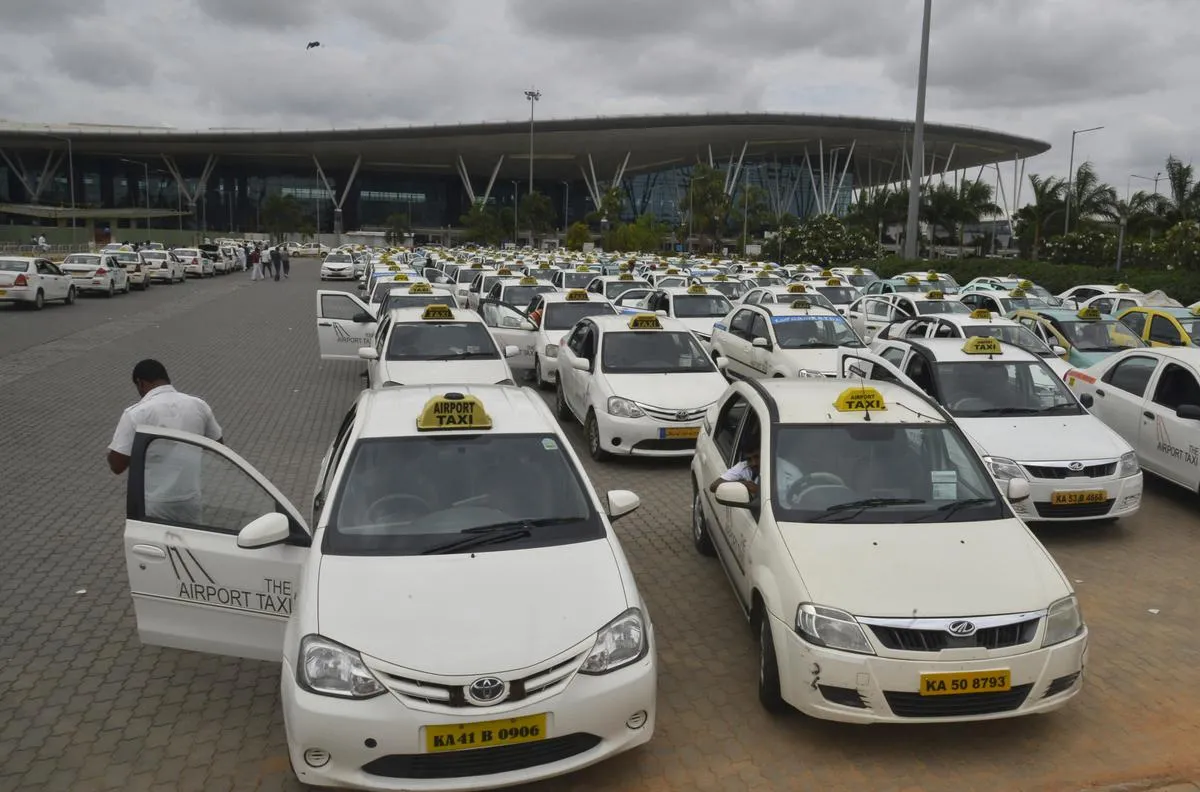Bengaluru Drivers Test New Metered Cab Model in Pushback Against App Commissions
In Bengaluru, a small but growing group of cab drivers is testing metered taxis under a government-fixed fare model. This move marks a bold challenge to ride-hailing giants like Ola and Uber, whose high commission rates are being criticized for reducing driver earnings. Local cab drivers argue that app-based fare structures, which often include commission rates as high as 30%, cut deeply into their overall income.
The Karnataka government’s February 3 ruling set consistent fare guidelines for taxis and auto-rickshaws operating within the state, effectively categorizing vehicles by price range. For cars valued under Rs 10 lakh, the fare starts at Rs 100 for the first four kilometers, with Rs 24 for each additional kilometer. Higher fares were established for cabs valued between Rs 10-15 lakh and over Rs 15 lakh, with per-kilometer rates of Rs 28 and Rs 32, respectively. Currently, Meru is the only operator with metered taxis dedicated to airport routes.
Brand Pride Mobility, led by CEO Niranjanaradhya N, is facilitating the adoption of metered taxis for drivers eager to retain their full fare earnings. He describes the high commission rates from cab aggregators as unsustainable, sharing an example where a Rs 600 trip nets drivers only Rs 400-420 after app fees. Under the metered system, these drivers can keep 100% of their fare revenue, which they hope will improve their livelihood. Brand Pride is also in talks with government officials to support the metered model and potentially bulk-purchase meters to make them affordable for drivers.
The Internet and Mobile Association of India (IAMAI), which represents digital service providers, voiced concerns about the uniform fare structure, claiming that banning dynamic pricing would strain both drivers and passengers. IAMAI’s Associate Vice President, Chitrita Chatterjee, expressed that standardized fares could result in longer wait times and higher prices for extended trips. She highlighted that app-based services operate on a different, tech-enhanced model and should not be directly compared with traditional street-hailing taxis.
With an initial group of 200 cab drivers showing interest in the metered approach, this pilot project may indicate a shift in Bengaluru’s transportation sector. The success of the metered model could eventually provide cab drivers more autonomy over their earnings and reshape how the public accesses on-demand transportation.
As Bengaluru continues to balance traditional and modern transportation methods, one question remains: will the metered model emerge as a sustainable alternative, or will aggregator apps continue to dominate the market?

COMMENTS (0)
Sign in to join the conversation
LOGIN TO COMMENT